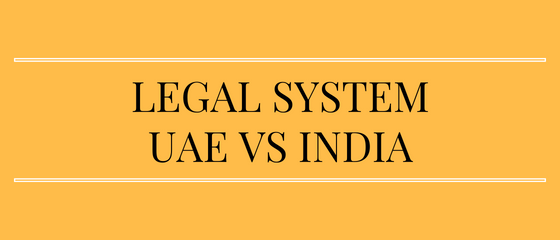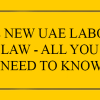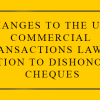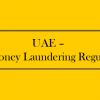(UAE) with its political stability, internal security, visionary leadership, investment-friendly policies, advanced infrastructure, cosmopolitan lifestyle, and a dynamic open market approach fits the bill perfectly for an investor that is considering expanding into the MENA region Indian companies with robust balance sheets, ready access to capital and strong positions in their domestic markets are increasingly looking to expand globally to new growth markets as the local markets become saturated.
The Middle East and North Africa (MENA) region shows immense potential for growth; however, companies often wonder how to manage the downside risks, including political instability, infrastructure deficits, difficulty in attracting top talent, environmental degradation and other challenges associated with the MENA region.
The United Arab Emirates.
All of these advantages are complemented with a minimal tax regime (currently Value Added Tax is charged at 5%) and full repatriation of capital. On the ranking of the best destinations for direct foreign investment, the UAE regularly ranks within the Top 15.
But doing business in the UAE is not without its challenges, and having local help onboard is crucial. This article highlights some key differences between the UAE and the Indian Legal System which the investors needs to consider.
Common Law vs. Civil Law System
Legal systems around the world can generally be grouped into two main types: common law and civil law. The difference between the common and the civil legal systems lies in the main source of law. Although common-law system, which is followed in India, make extensive use of codes and statutes, judicial cases are regarded as the most important source of law, which gives judges an active role in developing rules. For example, the elements needed to prove a corporate fraud are contained in case law, rather than defined by code and statute. To ensure consistency, courts abide by precedents set by higher courts when examining the same issue.
By contrast, in civil-law systems, codes and statutes are designed to cover all eventualities and judges have a more limited role of applying the law to the case in hand. Past judgments are used only as guidance and the same case with same issues may have a different outcome based on the interpretation of the judge handling the matter, as earlier judgment is not binding.
This difference can be somewhat mitigated as the parties can now chose to litigate their commercial dispute in the courts of the Dubai International Financial Centre (DIFC), regardless of the fact that the businesses are based outside of the DIFC. The DIFC courts are an independent, common law judicial system that uses English language, unlike other UAE courts, the proceedings of which are conducted in the Arabic language.
Mandatory Good Faith Principle
Indian law (which is a common law legal system inherited from the British colonial era) does not currently recognize the legal principle of good faith in dealings between commercial contractual parties. The exception is that duties of good faith are owed in “relational contracts,” where there is a fiduciary relationship, such as in partnership, agency, employment or insurance contracts.
This is in contrast to UAE Laws (which is a civil law system), in which there is an overriding principle that parties must act in good faith in the performance of contractual obligations.
This inconsistency, if not carefully looked upon, may create some additional obligations and liability for the contracting parties in the UAE.
Ownership in the Company
In general (the exceptions are there), the UAE Law requires that UAE or GCC nationals, or companies wholly owned by UAE or GCC nationals, must own at least 51 percent of the capital of any company formed in the UAE. The normal maximum permitted foreign ownership in a company formed under the Companies Law is 49 percent; and pursuant to other applicable laws, regulations and policies, the permitted foreign ownership threshold may be lower for companies engaged in certain specific types of activities. The companies based in the free zones are not caught by such ownership restrictions – although their ability to do business in the UAE outside the free zone is restricted.
It is possible for foreign shareholders to beneficially hold a higher percentage of the shares than those that are actually registered in their name. Typically, foreign companies enter into side arrangements with the local shareholder, whereby the local shareholder would agree to hold his or her or its shares on trust for the foreign company/shareholder. However, these sponsorship arrangements have an element of risk, since they are essentially an attempt to circumvent the aforementioned foreign ownership restriction, which is specifically prohibited under the Anti-Fronting Law No. 17 of 2004, a breach of which is penalized by the payment of fine and/or imprisonment.
There are a number of methods to minimize the risk that is associated with these arrangements and for controlling the channeling of benefits to the minority shareholder (e.g., entry into shareholder’s agreements, management contracts, supply contracts, etc. with the company or other shareholders to obtain bargaining power, etc.).
The most common forms of corporate vehicle in the UAE are limited liability company (LLC) for international investors establishing joint venture operations.
Recently, the UAE Cabinet has announced that it has passed a resolution to relax the onshore foreign ownership restrictions allowing international investors to own 100% of companiesand granting long-term residency permits for foreign investorsin order to accelerate economic growth in the UAE.
His Highness Sheikh Mohammed Bin Rashid Al Maktoum, the Vice President and Prime Minister of the United Arab Emirates, and Ruler of the Emirate of Dubai, has issued instructions to the relevant authorities to implement the resolution by the end of 2018.
This move has the potential to affect all businesses in the UAE, whether onshore or established in a free zone.
Real Property Ownership
Except in certain designated areas or in certain free zones, real property may only be owned by UAE (or nationals of Gulf Co-operation Countries, being the Kingdom of Saudi Arabia, Sultanate of Oman, Kingdom of Bahrain, Qatar, Kuwait and the UAE in certain circumstances) nationals or entities that are wholly owned by such persons. Most foreign businesses lease their premises.
Corporate Governance
The UAE have seen a rise in corporate governance practices in the past few years. However, to date, there is no binding comprehensive corporate governance code. Therefore, this area of law, unlike in India, is still unsophisticated and evolving.
As an example, and from a strict legal perspective, it is not possible to limit the liability of directors and managers in the UAE. It is possible to take out directors’ and officers’ liability insurance. However, the penalty for certain forms of breach involves criminal punishment and, in some cases, imprisonment. That being the case, the extent to which directors can be protected from liability is limited. There is no comprehensive list of duties that apply to directors and managers at present. Various duties can be found in the Commercial Companies Law, the free zone regulations, and various other piecemeal legislation. While some free zones provide regulations detailing the obligations and duties of directors, many of the free zones resort to the Commercial Companies Law for the governance of directors’ obligations and duties.
It is also worth noting that the rules and regulations in the UAE can be changed with no prior public proclamation, and the intricacies of procedure may vary in practice, as procedure is a realm subject to administrative discretion. If there’s one piece of practical advice we could give to the investors is that to have a trusted local partner who could play a crucial role while navigating the business and legal environment in the UAE.






